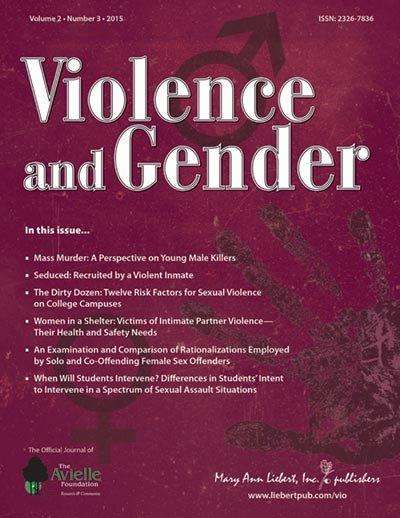Do male/female 'rape myths' influence a bystander's likelihood to intervene in a sexual assault?

The growing use of bystander intervention strategies on college campuses and in the military to prevent sexual assault necessitates a better understanding of the effect that rape myths might have on an individual's likelihood to intervene and help an acquaintance or stranger. A new study examining how acceptance of myths about rape involving a male or female influences bystander behavior in a sexual assault setting is published in the peer-reviewed journal Violence and Gender.
In "Male Rape Myths, Female Rape Myths, and Intent to Intervene as a Bystander," Judith Rosenstein, United States Naval Academy, Annapolis, MD, and Marjorie Carroll, United States Military Academy, West Point, NY, found that whereas acceptance of both female and male rape myths is associated with bystanders being less likely to intervene when someone they know is being sexually assaulted, only acceptance of male rape myths had a negative relationship with the likelihood to help a stranger.
"This article discusses a topic that not surprisingly is too often kept out of the discussion on sexual assault-male victimization," says Editor-in-Chief Mary Ellen O'Toole, PhD, Director of the Forensic Sciences Program, George Mason University (Fairfax, VA), Forensic Behavioral Consultant, and Senior FBI Profiler/Criminal Investigative Analyst (ret.). "I think this is a conversation we need to have, and the findings of this research point out why male victimization can be such a challenge to reduce, particularly in hyper-masculine groups like the military, or college groups like fraternities and athletics. In order to turn around the bystander intervention response in these groups, directed effort has to be placed on rape myth acceptance involving male victims."
More information: The article is available free on the Violence and Gender website until November 19, 2015.















